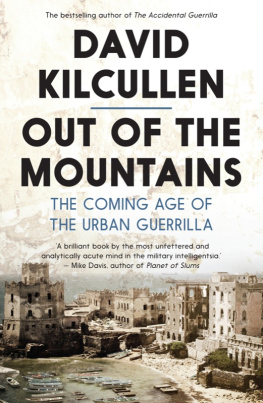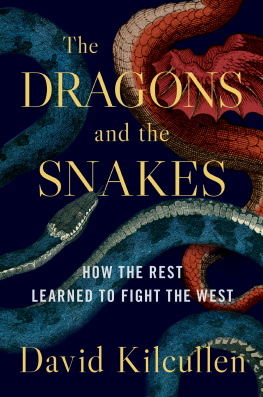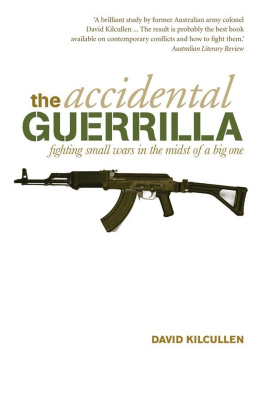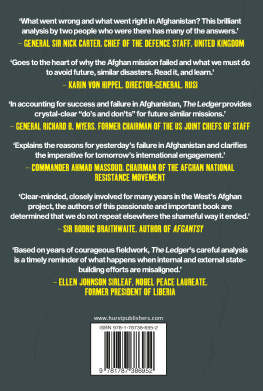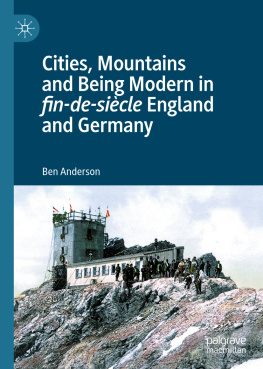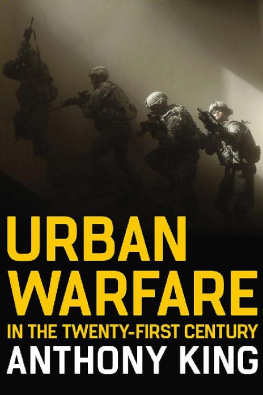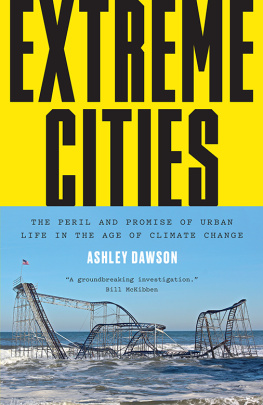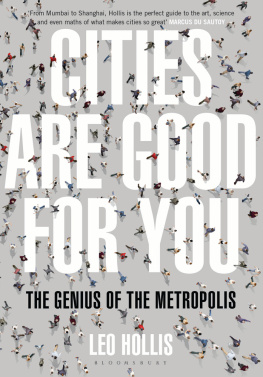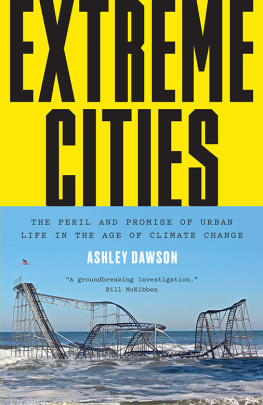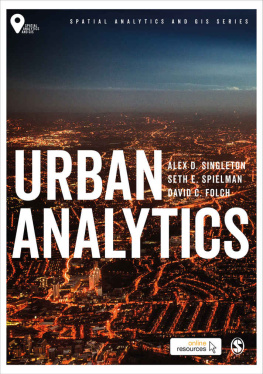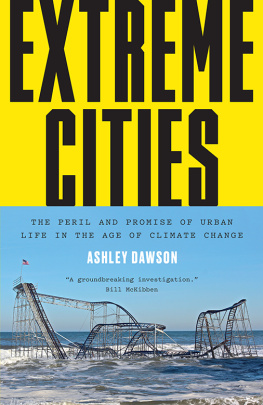
Scribe Publications
OUT OF THE MOUNTAINS
David Kilcullen is one of the worlds foremost thinkers on counterinsurgency and military strategy. He served 24 years as a soldier, diplomat, and policy adviser for the Australian and United States governments, and he held the position of senior counterinsurgency adviser to General David Petraeus in Iraq and to the NATO Security Assistance Force in Afghanistan. He is currently the chief executive officer of Caerus Associates, a Washington-based strategy and design firm. His books include The Accidental Guerilla , which was a Washington Post bestseller, and Counterinsurgency .
Scribe Publications Pty Ltd
1820 Edward St, Brunswick, Victoria 3056, Australia
50A Kingsway Place, Sans Walk, London, EC1R 0LU, United Kingdom
Published by Scribe 2013
This edition published by arrangement with C. Hurst & Co. (Publishers) Ltd.
Copyright David Kilcullen 2013
All rights reserved. Without limiting the rights under copyright reserved above, no part of this publication may be reproduced, stored in or introduced into a retrieval system, or transmitted, in any form or by any means (electronic, mechanical, photocopying, recording or otherwise) without the prior written permission of the publishers of this book.
National Library of Australia
Cataloguing-in-Publication data
Kilcullen, David, author.
Out of the Mountains: the coming age of the urban guerrilla / David Kilcullen.
9781922070678 (paperback)
9781922072658 (e-book)
1. Insurgency. 2. Guerrilla warfare. 3. Asymmetric warfare. 4. Counterinsurgency. 5. Terrorism. 6. Subversive activities.
355.0218
scribepublications.com.au
scribepublications.co.uk
Contents
Introduction:
Appendix:
Acknowledgments
I called this book Out of the Mountains , but I might just as easily have called it Back to the Future , since the issues I examine herecentered on conflict in the urbanized, networked littorals of an increasingly crowded planetwere already well understood by the end of the last century.
Marine Corps general Charles Krulak said in 1996 that the future may well not be Son of Desert Storm, but rather Stepchild of Somalia and Chechnya. Ralph Peters, Robert H. Scales, Alan Vick, Roger Spiller, Russell Glenn, Paul Van Riper, John Arquilla, Michael Evans, and Justin Kelly had all written extensively by the late 1990 s on urban operations in coastal cities. By 2000 , Dave Dileggelater a torchbearer for the insurgency of ideas through the Small Wars Journal had founded a community of interest around his Urban Operations Journal . At the same time, Duane Schattle, Dave Stephenson, and Frank Hoffmann were thinking through the challenges of urban operations against hybrid threats. Military forces in several countries were expanding their amphibious and urban capabilities, while police services, aid agencies, and some NGOs were considering governance and human security in marginalized urban areas. I myself had written a series of papers on urban tactics and amphibious operations, informed by the experience of late- 1990 s peace enforcement in coastal environments.
But much of this thinking on urban littorals, an already very well established set of ideas by 2001 , was sidelined by urgent military necessity after the horrendous Al Q aeda terrorist attacks of /. We found ourselves (not by choice) involved in a landlocked, rural insurgencyfar from cities or coastlineshunting guerrillas in mountain valleys, trying to work with and protect the remote tribal communities in which they nested and on which they preyed. As Iraq descended into chaos after 2003 , we were drawn into intense urban counterinsurgencybut, again, we were far from the coast. For a decade since then, the vibrant civilian and academic discussion about future challenges in coastal megacities has gone on without much input from those who have been fighting the war. Bing West, with his closely observed studies of urban combat in Iraq, and Lou DiMarco, with his survey of urban operations since Stalingrad, are two outstanding exceptions to this rulebut even their work has had less impact on the debate than it deserves.
That civilian debate, however, has been enormously productive. Diane Davis, Stephen Graham, Jo Beall, Mitchell Sipus, Saskia Sassen, and Mike Davis, among many others, have added immensely to our understanding of development and conflict in connected cities. Policing and crime thinkers such as John P. Sullivan and Diego Gambetta, and urban sociologists such as Sudhir Venkatesh have studied the challenges of criminal insurgency in large cities and explored the ways in which underworld networks communicate. Institutions such as the World Bank, the United Nations, and the Asian and African Development Banks, along with firms such as IBM and McKinsey, have studied the problems of future urbanization. Universities including the London School of Economics, the Massachusetts Institute of Technology, Columbia University and the Harvard Graduate School of Design, among many others, have established cities programs, while think tanks such as the Brookings Institution (with its Global Cities Initiative) have examined the problems of urban growth, littoralization, and connectivity. Architects such as Oystein Gronning and Eyal Weizman have applied spatial design thinking to urban conflict.
Now that the war in Afghanistan is beginning to wind down, its time for the military to reengage with the challenge of irregular conflict in the urban littoral. When the dust eventually settles and our generation, the generation that fought the war, shakes itself off and turns from the moment-by-moment challenge of the war to once again consider the future environment, well find that the same old challenges of the urbanized littoral remain, but that much of what we thought we understood has changed. Not only have enormous advances been made over the last decade in cloud computing, complex systems theory, big data analysis, remote observation, and crowd-sourced analyticsallowing new insights into old problemsbut vast amounts of real-time data are now available to inform our thinking. Most important, the environment itself has changed. The level of connectivity and networked interaction (among populations all over the planet, and between and within coastal cities) has exploded in the last decade, and its time to bring this new understanding to bear on the problems of urbanization and conflict. What we may findand what this book tentatively suggestsis that things arent where we left them when we headed off into the mountains after /.
In writing this book, Ive benefited from the thinking and research of all these individuals and institutions, and also from the unstinting and generous help of friends, colleagues, and family across the whole world. Professor Tammy Schultz read and carefully critiqued every chapter. Dr. Erin Simpson kept me focused on the big issues and helped sharpen the argument over many discussions in the field and over the map. Greg Mills, Oyeshiku Carr, John Pollock, Claire Metelits, Satish Chand, and Amit Patel contributed foundational ideas, as did Leah Meisterlin, Steve Eames, Nigel Snoad, Oystein Gronning, Antonio Giustozzi, Claudio Franco, Andrew Exum, Gordon Messenger, and John Sullivan. Stacia George, Alex Hughes, Jason Knobloch, Matt McNabb, Richard Tyson, and Will Upshur at Caerus designed and led community-participative mapping programs in some extremely challenging urban environmentsand developed crowd-sourced analytics and remote observation tools that made it possible to see the patterns discussed in this book. Likewise, Anna Prouse, Nate Rosenblatt, Jacob Burke, and Omar Ellaboudy pioneered field research techniques to map the virtual/human network overlaps that turn out to be critical in this environment. Nate Rosenblatt, in particular, provided many insights and key sources that proved critical to understanding the Arab Awakening, while Anna Prouse fearlessly walked the streets of several hostile cities (not just in Africa) as we figured things out. Christian Chung and Scott Long did the initial desktop analysis on Jamaica and Sri Lanka that helped me to do effective fieldwork later. Michael Stock, Randy Garrett, Ben Riley, John Seel, Pat Kelleher, Nadia Schadlow, Marin Strmecki, and Dan Ermer provided guidance, insight, funding, and moral supportnot necessarily in that order of importancethat made this research possible. Ben Fitzgerald and his team at Noetic were essential partners in the effort, and the Smith Richardson Foundation gave generous financial and intellectual support to field research and tech platform development. To the extent that this work has any merit, it derives in large measure from the wisdom of this great community of research and program partners; the errors, omissions, and misstatements, of course, are mine alone.
Next page
